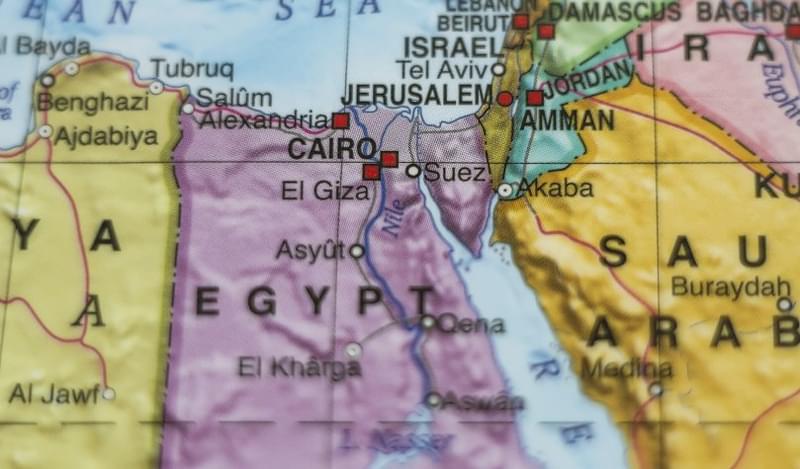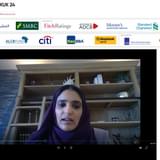A $2bn deposit provided by Saudi Arabia to Egypt’s Central Bank reserve is expected to bring Cairo one step closer to obtaining a $12bn lending package from the IMF.
The Saudi deal followed shortly after the UAE agreed to give Egypt’s central bank a $1bn deposit for six years. It brings the overall volume of cash injections into the Egyptian economy by the Gulf state in recent years to $25bn dollars.
The agreement also goes some way to easing the tensions between the two Middle East states related to disagreements on the Syrian resolution and maritime border dispute, and a row in the aftermath of a decision by Saudi Aramco to halt this month’s petroleum supplies to Egypt.
Observers agree that the long-term strategic importance of maintaining strong ties with Cairo and supporting its economy in order to prevent the spread of extremism trumped any temporary differences.
“Saudi Arabia remains committed to stabilising Egypt with financial aid, after the disruptive period of the Arab Spring,” noted Charles Robertson, Chief Economist at Renaissance Capital.
“The Saudi loan is also apparently part of the support needed to lift reserves so that Egypt can float the currency and win the IMF deal it needs.”
Currently Egypt’s foreign currency reserves stand at US$19.6bn. The country will now have to find an additional US$3bn or US$4bn in bilateral loans – a key stipulation of the August agreement with the IMF.
Simon Kitchen, strategist at EFG-Hermes, suggests that Europe and Japan could make further contributions and the IMF deal is likley to be finalised in October or November.
"The chances are very high. Egypt has few options left, and it has taken several steps necessary for the IMF deal, such as introducing the VAT and limiting growth in public sector wages," commented Kitchen.
According to Alan Cameron, chief economist at Exotix, the IMF loan would consist of a three-year US$12BN in tranches, which is the maximum amount it could get with their credit.
“They are asking for it to be frontloaded, or be dispersed over the life of a two-year programme, rather than the more customary three year,” Cameron said. “This factor dictates the urgency of topping up the central bank reserves – arguably, they want to have a better buffer in place to devalue their currency.”
“I think there’s now very good chance of the IMF package being delivered. Saudis are a longstanding supporter of Egypt, which is reflected in the favourable terms of the deposit,” Cameron added.
Traditionally, Saudi Arabia, the UAE and other GCC states have been the biggest lenders to Egypt, but the fall in oil prices means there is less spare cash to go around.
“Generally the funding from Saudi & the Gulf states is currently in structural decline, which is why Egypt is turning to the IMF and commercial financing, which comes with strings attached,” Cameron noted.
If Cairo is unable to secure lending from its neighbours, it may be forced to turn elsewhere for help, with China and some G7 states seen as the likelier candidates. Egypt’s Deputy Finance Minister for Treasury Mohamed Meait claimed in September that the central bank was set to begin negotiations with China over a possible $2bn loan, with Egyptian media later reporting that the figure could actually be as high as $4bn.
However, the Chinese foreign ministry’s response cast doubts over those plans with a statement that “some initial progress on a currency swap deal” was made. As no details of these discussions have surfaced since, it appears that rumours of a deal were somewhat premature.
In the same announcement Meait also claimed that Egypt is planning to tap the international bond markets in October and November. The government has, according to the official, approved the potential sale of $3bn to $5bn of securities, with JPMorgan, Citi, BNP Paribas, and Natixis acting as lead managers.
Other likely contenders have emerged. In the last few months there has been speculation about Russian interest, with NBE’s chairman mentioning ongoing negotiations with Russian investors to enter into new partnerships and finance some parts of the Suez Canal Area Development Project.
Markets Rally
News of the Saudi deposit on Thursday buoyed the local markets, with country’s top 30 corporate stocks surging 3.9% to 8,505 points. Global Telecoms traded at 5.20 Egyptian pounds – an impressive 11.6% rise, while the EFG Hermes went up by 4.4%.
Economists expect that a successful completion of the IMF deal would prompt inflows of capital into the country. Provided there is an attractive rate of return and yields, some of it may come from Egyptian-owned dollar deposits held offshore – Cameron estimates that figure to be as high as US$18bn.
But for now the government needs to focus on ticking all the boxes of the IMF agreement, with Christine Lagarde recently reaffirming the need to see further reform, namely on subsidies and VAT.
“The priority has to be getting dollar liquidity - right now the squeeze is hurting investment. The next priority is increasing investment,” Robertson concluded.
As is often the case, an IMF deal comes at a price, particularly to those less well off. In Egypt’s case, loan terms would require painful spending reforms, which would include trimming a heavy 6-7% government wage bill and state subsidies that are regressive and mainly benefit the wealthy.
At the same time, the inevitable further devaluation of the currency would push up inflation, which would impact the whole population.
“Overall, though, I don’t think this loan would devastate the economy. It will have a positive net effect on their credit and could potentially unlock the private investment sector to the economy,” Cameron said.
With the IMF growing increasingly impatient with Abdel-Fattah al-Sisi administration for stalling on its promises, these reforms, albeit hurtful, have to be passed sooner rather than later in order to revive economic growth.









